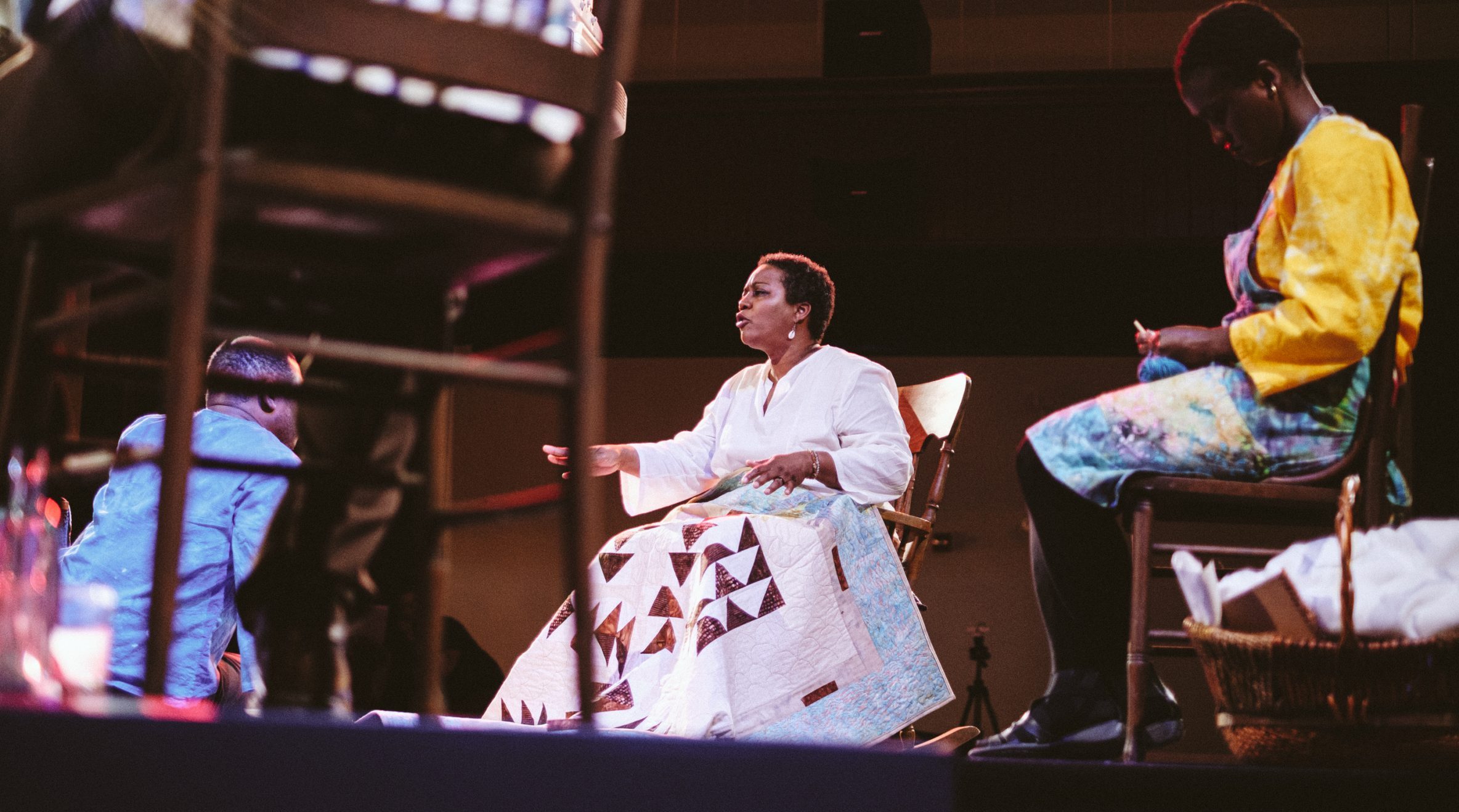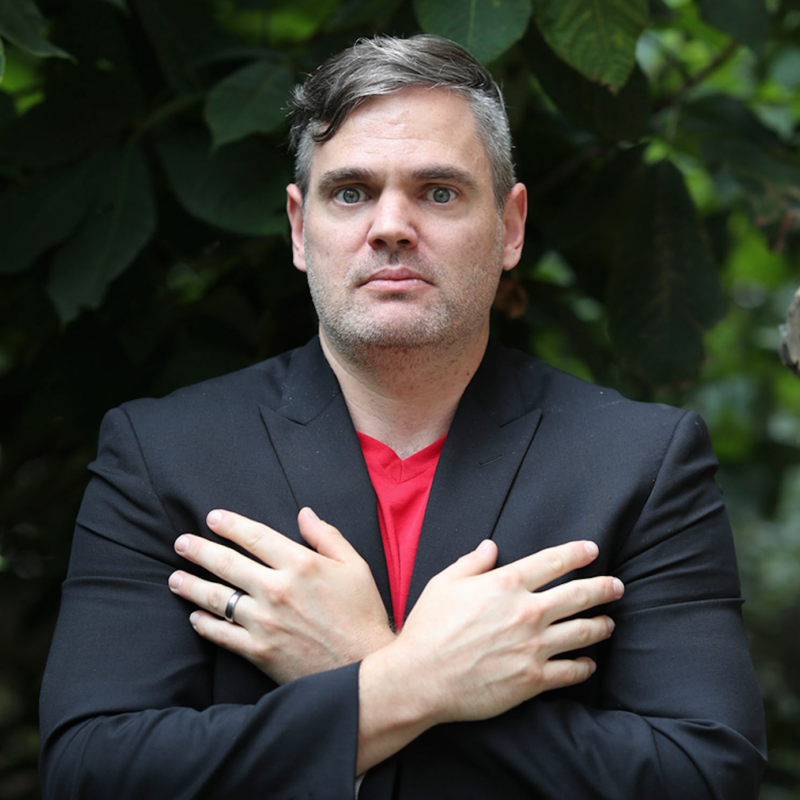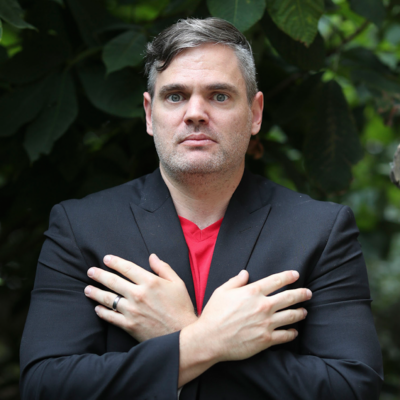The Charlottesville Players Guild will perform its 2022-23 season entirely in the round, with the stage completely surrounded by audience members who are not considered observers, but rather part of the production. That’s the aesthetic Leslie M. Scott-Jones, associate curator of education and public programs at the Jefferson School African American Heritage Center and artistic director of the Charlottesville Players Guild, has helped curate. “Within the Black aesthetic, the audience is part of the show,” Scott-Jones says. “They are a witness. They are integral to how the story unfolds. And depending on who’s in the audience, it may unfold a little differently.”
The plays unfolding at the JSAAHC this season are part of a dream that Scott-Jones and Executive Director Dr. Andrea Douglas shared when founding the CPG: performing all 10 works in August Wilson’s Century Cycle, which spans the entirety of the 20th century and explores what it means to be Black in America.
The cycle, and CPG’s season, launched April 14 with Gem of the Ocean. Set in 1904, the play follows ancient matriarch Aunt Ester as she guides Southern newcomer Citizen Barlow through a spiritual journey while a theft at a local mill causes an uproar.
Chris D. Evans plays Caesar Wilks, a policeman fighting for control over both the community and his own family. His sister “Black” Mary Wilks, played by Aiyana Marcus, rejects Caesar’s authority and instead becomes Aunt Ester’s protégée.
“[Aunt Ester] demands the respect that he calls for, and she doesn’t have to call for it. She just gets it,” Evans says. “He has a badge and a gun. He’s the authority, so people should respect him, but they don’t. Whereas she’s just an elderly woman, and they’re not respecting her for her age. They’re respecting her for everything else that she is and what she gives to the people in the community.”
Marcus sees “Black” Mary’s respect for Aunt Ester in her own desire to learn from her elders, including mentor Scott-Jones.
“Thinking about the spiritual aspects of this play, I do think that it’s very timely,” Marcus says. “I can just speak for myself as a Black person, as a theater goer, as an artist: to be able to encounter a play that really harnesses the themes of binding, healing, and cleansing, and what that means for legacy and intergenerational relationships…I find it nourishing to be a part of.”
With Scott-Jones directing, Evans and Marcus are joined by cast members Richelle Claiborne, Hyison Payne, Derick Javon Williams, Jamahl Garrison-Lowe and Christopher Baumer.
Following the Gem of the Ocean run, William Shakespeare makes his second appearance in the CPG lineup with Titus Andronicus. Like CPG’s 2018 rendition of Macbeth, which was retitled Black Mac, Scott-Jones says the production will be “Black as fuck.”
“A lot of people have trouble relating to Shakespeare because of the language,” Scott-Jones says. “But 20 minutes in, you kind of get a Shakespeare ear, like okay, I get what they’re saying now. When you pair that with a Black aesthetic, it doesn’t take those 20 minutes.”
The CPG production will transport Shakespeare’s ancient Roman characters to 1835, when a group of enslaved African Muslims successfully rebelled against the Empire of Brazil in what is now known as the Malê revolt.
“That’s the beauty of Shakespeare, is that you change it to fit the time, and a different place, and a completely different background configuration, because his writing is so universal,” Scott-Jones says.
Putting Shakespeare between two plays by Wilson, who is sometimes referred to as the “Black Shakespeare,” is deliberate. Both playwrights’ works ponder universal concepts in an almost musical cadence, thanks to Shakespeare’s love of poetry and Wilson’s muse, the blues.
In Two Trains Running, that lyricism is evident: “There are always and only two trains running. There is life and there is death. Each of us rides them both.” The play, an account of the urban renewal movement uprooting Black neighborhoods in 1960s Pittsburgh, is the CPG season finale and the sixth installment in the Century Cycle.
Next season, Scott-Jones plans to complete the cycle with Ma Rainey’s Black Bottom, a play about Chicago blues singers in the 1920s; Seven Guitars, a 1940s study of seven characters; and King Hedley II, where those characters are revisited 40 years later.
Finishing Wilson’s cycle will be possible, Scott-Jones says, because of the season subscriptions that funded half of CPG’s locally written lineup in 2021.
“That is amazing support,” she says. “It shows everyone that works here, that does a show with us, that there is support, that this is wanted, that people are going to come. They are committed and want to see us do well.”
Scott-Jones believes CPG has gained community support by providing Charlottesville with a uniquely communal product that draws on the lived experiences of the cast, the crew, and even the audience.
“You’re not just watching it here, you are witnessing it, which requires you to be present in the moment,” Scott-Jones says. “I think that is why the audience we have built keeps coming back.”






